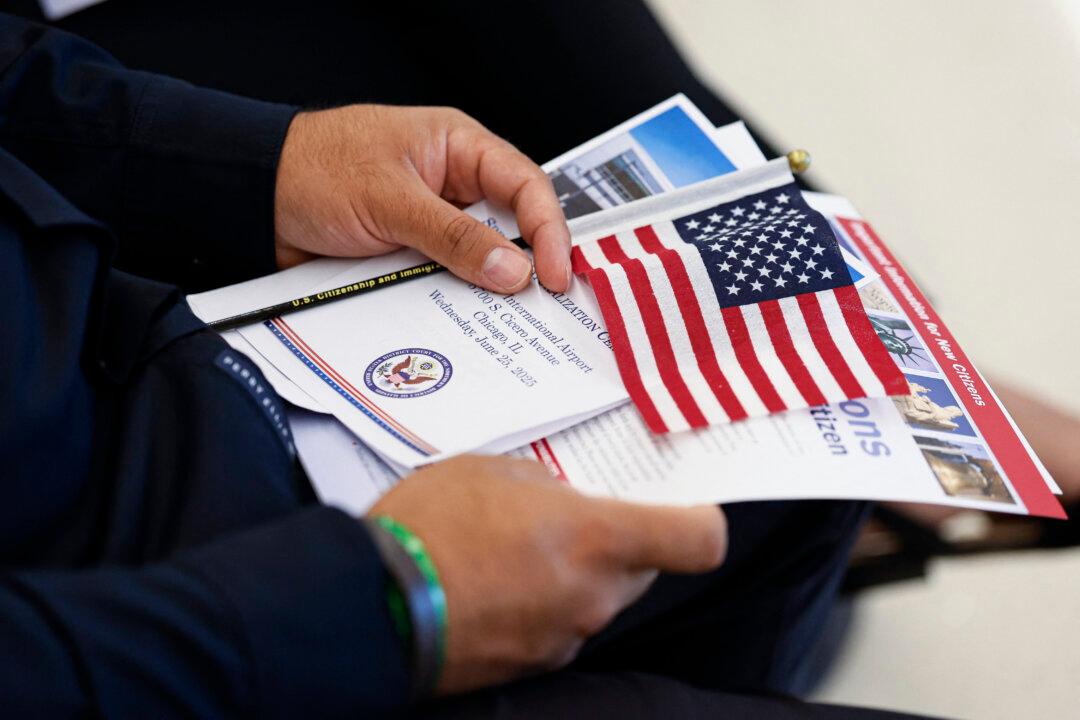In the latest USCIS Immigration news, a significant policy update has been released that directly affects immigrants applying for U.S. naturalization. On August 15, 2025, the United States Citizenship and Immigration Services (USCIS) issued a Policy Memorandum titled “Restoring a Good Moral Character Evaluation Standard for Aliens Applying for Naturalization.”
The memorandum restores and clarifies how officers should assess Good Moral Character (GMC), a requirement that every applicant for naturalization must meet. This update is intended to return to a more balanced, historically consistent interpretation of the law, ensuring both fairness for applicants and integrity in the naturalization process.
This article explores what is new in the update, how it impacts immigrants applying for citizenship, and what this means going forward.
What’s New in the USCIS Policy Update
The new policy focuses specifically on the evaluation of Good Moral Character for individuals seeking U.S. citizenship.
1. Restoring Long-Standing Standards
-
The update essentially reverses recent restrictive changes that had narrowed the interpretation of what constituted good moral character.
-
By restoring prior standards, USCIS is ensuring consistency with historical practice and statutory intent.
2. Guidance for USCIS Officers
-
Officers are now instructed to apply the good moral character evaluation in line with past interpretations.
-
The memorandum clarifies what types of conduct or records may weigh against an applicant, but it also emphasizes fair and consistent application across all cases.
3. Focus on Balance and Integrity
-
While integrity in the naturalization process remains a priority, the update underscores the need to avoid overly punitive or inconsistent decisions.
-
The restored standard helps ensure that applicants are judged fairly, based on clear guidelines rather than shifting interpretations.
In short, what’s new is not an entirely different approach, but rather a deliberate return to standards that USCIS historically used—standards that provide more predictability for applicants and more consistency for officers.
How Does It Impact Applicants?
This policy change will have a direct and important impact on individuals seeking to become U.S. citizens through naturalization.
1. Greater Predictability
-
Applicants can now expect a more stable and consistent evaluation of their good moral character.
-
Because the standards align with long-standing interpretations, applicants and their attorneys have clearer expectations when preparing cases.
2. Fairer Consideration of Conduct
-
The memorandum helps ensure that isolated incidents or past minor issues are not weighed disproportionately against applicants.
-
This does not mean all conduct is excused; rather, it reinforces that evaluations must consider the totality of circumstances and be consistent with law and policy.
3. Reduced Risk of Arbitrary Denials
-
Under prior restrictive interpretations, some applicants faced uncertainty or harsher outcomes.
-
The restored approach minimizes the risk of arbitrary denials and instead emphasizes a fair process that respects due consideration.
4. Integrity of the Naturalization Process
-
Importantly, the memorandum does not weaken standards.
-
Individuals with serious criminal histories or conduct clearly inconsistent with good moral character will still face denials.
-
The update simply ensures that the bar is applied appropriately, without overreaching beyond what Congress intended.
For many immigrants, this means a clearer path forward and an improved chance to demonstrate eligibility under fair and transparent standards.
Why This Update Matters
The requirement of Good Moral Character (GMC) has long been a cornerstone of the U.S. naturalization process. However, because the concept can be somewhat broad and subjective, it has also been a source of uncertainty for applicants.
By restoring the earlier interpretation, USCIS has:
-
Reduced confusion for applicants and legal representatives.
-
Promoted fairness in adjudications, especially for cases involving minor or older conduct.
-
Reinforced trust in the naturalization system by ensuring decisions are based on clear and consistent standards.
This update reflects a commitment to balancing fairness with integrity — recognizing the importance of protecting the naturalization process while also ensuring that deserving applicants are not unfairly excluded.
Wrap Up
The August 15, 2025 USCIS Policy Memorandum represents an important development in U.S. immigration law. By restoring the Good Moral Character evaluation standard, USCIS is realigning naturalization adjudications with long-standing practice, reducing unpredictability, and ensuring fair treatment of applicants.
For those navigating the naturalization process, this update offers reassurance that evaluations will be guided by consistent and historically grounded principles. While the requirement of good moral character remains firm, the way it is applied will now be more balanced, transparent, and predictable.
As naturalization continues to be the ultimate goal for many immigrants in the United States, staying updated on such policy changes is essential. This development not only shapes the path to citizenship today but also reinforces the values of fairness and consistency in U.S. immigration policy.
Follow us on social media and website for more insights!










